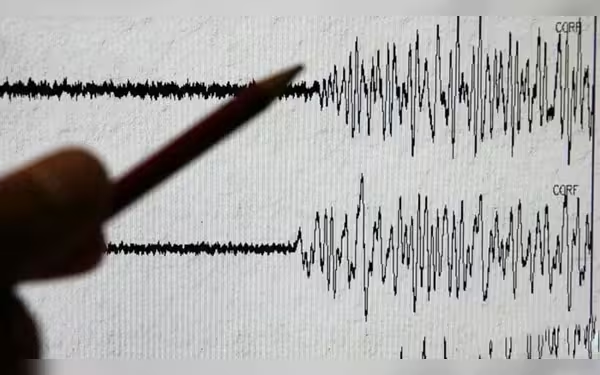Saturday, November 16, 2024 05:39 PM
Japan Tsunami Warning Issued After 5.9 Magnitude Earthquake
- 5.9 magnitude earthquake strikes near uninhabited island.
- Tsunami warning issued for Izu islands south of Tokyo.
- No immediate damage reported from earthquake or tsunami.
 Image Credits: thenews
Image Credits: thenewsA 5.9 magnitude earthquake near Japan's Izu islands prompts a tsunami warning, with no immediate damage reported.
Japan is no stranger to earthquakes and tsunamis, given its location along the Pacific Ring of Fire, where tectonic plates frequently shift. On Tuesday, a magnitude-5.9 earthquake struck near an uninhabited island in the Pacific Ocean, prompting a tsunami warning for the nearby Izu islands, located south of Tokyo. This event serves as a reminder of the natural forces that can impact the region, even in areas that are not densely populated.
According to the Japan Meteorological Agency, a small tsunami measuring 50 cm (1.6 ft) was recorded at Hachijo island, one of the Izu islands, approximately 40 minutes after the earthquake. Fortunately, there have been no immediate reports of damage from either the tsunami or the earthquake itself. Public broadcaster NHK has confirmed that the situation remains stable, with no significant tremors detected since the initial quake.
The meteorological agency had previously advised residents of the Izu and Ogasawara islands to be prepared for a potential tsunami that could reach heights of up to 1 meter (3.3 ft). This precautionary measure highlights the importance of being ready for natural disasters, even when the immediate threat appears to be minimal. The Izu islands, along with the more remote Ogasawara islands, are home to about 24,000 people, according to the Tokyo Metropolitan Government.
While the earthquake occurred undersea near the unpopulated Torishima island, approximately 600 km (370 miles) south of Tokyo, it is crucial for residents in coastal areas to remain vigilant. Earthquakes can trigger tsunamis, and even small waves can pose risks to those near the shore. The Japanese government has established robust systems for monitoring seismic activity and issuing warnings, which are vital for ensuring public safety.
The recent earthquake and subsequent tsunami warning serve as a stark reminder of the natural hazards that can affect Japan. It is essential for residents and visitors alike to stay informed and prepared for such events. Understanding the risks and knowing how to respond can make a significant difference in ensuring safety during these unpredictable occurrences. As Japan continues to face the challenges posed by its geological setting, the resilience and preparedness of its people remain key factors in navigating the uncertainties of nature.













